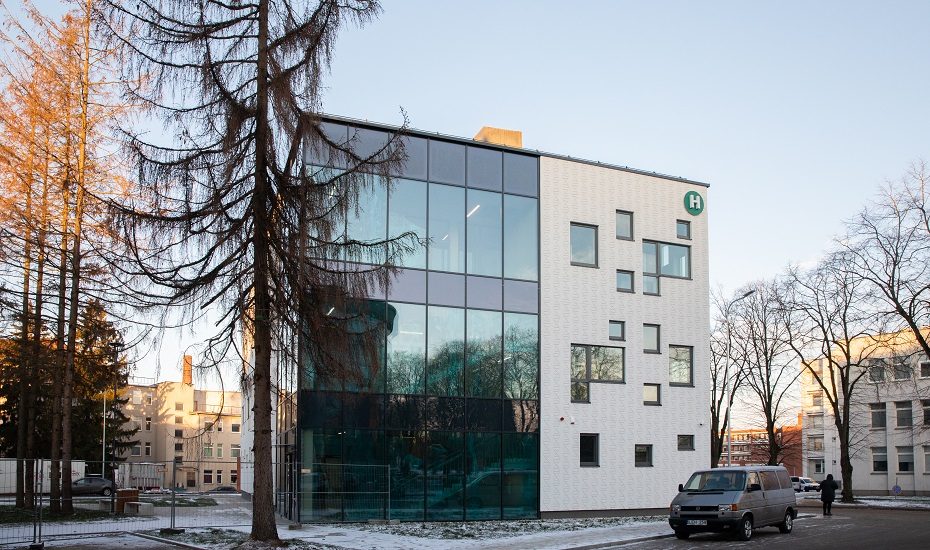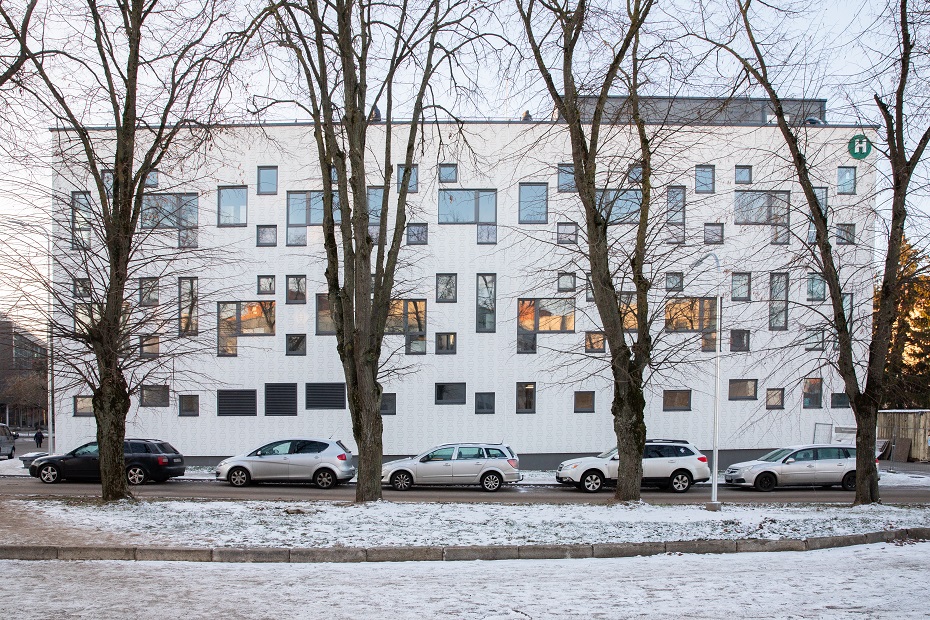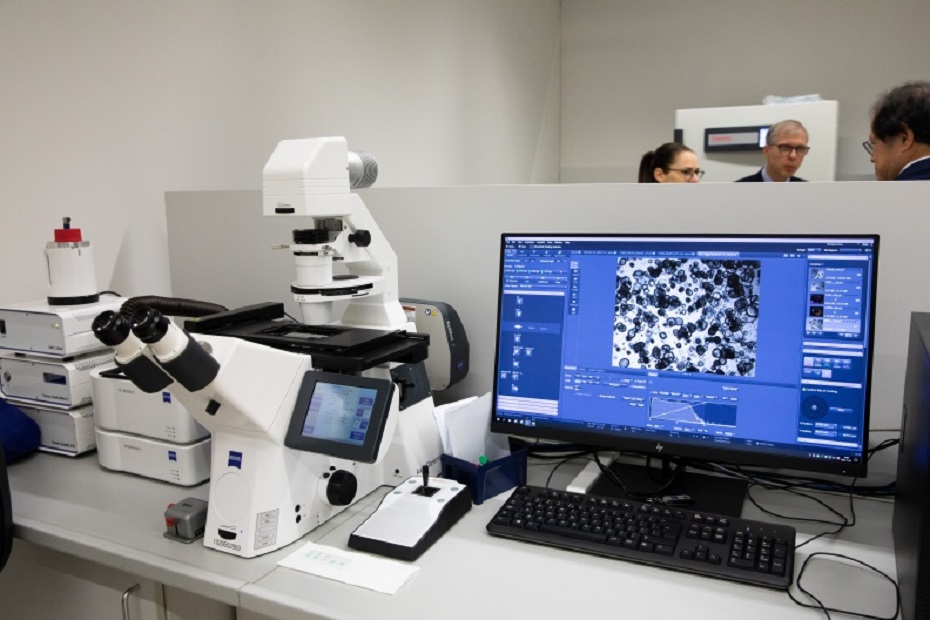Human Biological Resources Centre, currently under development by LSMU, will open its doors in Kaunas

The Human Biological Resources Centre is being built in Kaunas. The importance and goals of the so-called BioBank are explained by Prof. Dalia Pangonytė.
Is it true that Kaunas will have a Human Biological Resources Centre? When will it open?
Yes, and much has already been done in this field. The Lithuanian University of Health Sciences (LSMU) and the Lithuanian University of Health Sciences Hospital Kaunas Clinics are establishing a joint BioBank, which will start operating in the early 2024. It is being established in the Kaunas Clinics Department of Pathology building which is currently under reconstruction. The acquired latest technological equipment will ensure high quality of the samples collected. The advantage of such a BioBank is very great: it will bring together the efforts of researchers and medical practitioners in the planning and execution of research.
The BioBank is a scientific infrastructure that protects human biological samples and related information that could be used for biomedical research purposes, and for the development of new methods of treatment and diagnostics. It also includes the discovery of biomarkers of diseases and the development of personalised medicines. What prompted the need for such a BioBank in a relatively small country like Lithuania?
As we know, the population of Lithuania is not large, therefore, in order to achieve the necessary number of test samples when planning research, it takes time and hinders the progress of scientific knowledge. This is the reason why such a BioBank is being created. Around the world, a number of medicines and vaccines are already being developed with the use of BioBanks and health information. For example, vaccines against hepatitis B and human papillomavirus were developed using samples from around the world collected by the World Health Organization (WHO) International Agency for Research on Cancer BioBank. Coronavirus-infected samples and personal health information are collected to create the most effective vaccine against the SARS-CoV-2 virus as soon as possible.
The United States has collected biological samples of various local tumours from all over the world and compiled a “cancer gene map” to develop new strategies for cancer prevention, diagnosis and treatment. Using the biological samples collected in BioBanks, research on the interaction between genes and environmental conditions is carried out to improve public health in Sweden. The samples stored in BioBanks are used to research lung cancer, melanoma, a malignant skin tumour, and in search of new medications.
Is there such a BioBank in the National Cancer Institute and Santara Clinics? Will it be the third BioBank in Lithuania?
With the assistance of the European Union (EU) Structural Funds the creation of an infrastructure with a unified standardised system for the collection, processing, storage and data management of biological samples and related health information is currently being completed in Lithuania. LSMU and Kaunas Clinics together with partners National Cancer Institute (project applicant), Vilnius University, Vilnius University Hospital Santara Clinics and innovative Medicine Centre are implementing the joint activity project “Human Biological Resources Centre”.
How much does such a project cost?
The total value of this Centre is more than 9 million Euro – the funds were dedicated to the establishment of infrastructure for all partners, starting with the adaptation of premises and ending with the acquisition of the latest equipment that ensures the preparation and storage of samples. This will bring together the forces of the main institutions involved in human health research to collect large amounts of human biological samples and associated health information, as the discovery and validation of the patterns requires the study of large groups of patients, and patient monitoring usually takes a long time.
Will a large force be mobilised to enable the development of new and more advanced treatments in the future?

Yes. On the other hand, the establishment of this Centre has provided preconditions for Lithuania to become an observer of BBMRI-ERIC (a European research infrastructure for biobanking) in 2020, and to join as a real member of the BBMRI-ERIC from 2023. It brings together all the key actors in the field of BioBanks: researchers, managers of BioBanks, industry and patient representatives. The aim is to promote biomedical research, offer quality management services, assist in solving ethical, legal and societal issues and implement various online tools and software solutions. The ultimate goal is to create conditions for new treatments. BBMRI-ERIC shall also enable researchers to make use of biocollections gathered by researchers from other countries.
It is said that such banks would influence the development of personalised medicine. What is personalised medicine? Are we moving toward this, as it is shown in sci-fi films, when people use a personal BioBank – which stores “grown” organs in case they need a transplant, etc.? From science fiction to reality, is it close?
There are other Centres, so-called tissue banks, for therapeutic purposes, and BioBanks are being developed for purely scientific purposes, in order to accumulate a large number of high-quality samples that could be used for future research, including the development of personalised medicine. – How can such a bank specifically serve medical progress and patients themselves in Lithuania? – At the time of collection of the biological material, it is usually not possible to indicate in which specific scientific study the samples and health information will be used. This will benefit the society of the future, the progress of biomedical science, the development of new medicines and diagnostic methods and strategies for improving health.
How can such a bank specifically serve medical progress and patients themselves in Lithuania?
At the time of collection of the biological material, it is usually not possible to indicate in which specific scientific study the samples and health information will be used. This will benefit the society of the future, the progress of biomedical science, the development of new medicines and diagnostic methods and strategies for improving health.

On the other hand, clinical studies are more frequent in medical institutions that have large amounts of biological samples in BioBanks. And the medications they test can be the only ones that save the patient’s health and life. In addition, the BioBank’s activities provide for the possibility to transfer the information of the investigation to the treating physician if one or another threatening condition is identified if the donor so wishes. If necessary, they can report the results of the study.
In addition to the EU Structural Funds, a significant part of the investment was made by Kaunas Clinics themselves and they also provided conditions to improve the diagnosis of histology tests for patients. After the introduction of automated sampling, the diagnostic time of the pathology will be reduced. In addition, by digitising microscopic images, they can not only be stored for scientific purposes, but can also be applied to a variety of imaging analyses to diagnose. These images can be used for consultations not only with fellow pathologists in Lithuania, but also abroad, when discussing the strategy of pathology diagnosis. Thus, histological tests are already carried out faster and more precisely today in the Department of Pathology.
Will the scientists conducting biomedical research be able to contact the BioBank to request a set of biological samples of patients and related medical information?
Scientists who plan research will be able to make a request to the BioBank, indicating what kind, how many samples and what medical information they need. They will then receive an answer as to whether such material is sufficient for their research. Then, with the permission of the bioethics committee, samples can be transferred to researchers. For example, scientists have come up with the idea that mutations in several genes may affect the treatment of malignant tumours, and they will be able to get the necessary tissue samples and evaluate the changes in their genes or their expression. On the other hand, scientists will also be able to initiate the collection of new “sets” of samples. –
Will the information be available to people that their tissue samples are stored in the BioBank?
In all cases, without exception, you will know that your sample is stored in the BioBank, because you will be asked for written consent before the sample is placed there. Without consent, samples are not registered at the BioBank. I would like to point out that various samples can be stored in the BioBank: tissues, cells, blood and its fractions, other bodily fluids. All of these samples are usually taken as residual medical research material, which is disposed of in the absence of a BioBank. Sometimes a sample may also be requested specifically for the BioBank, but the person is always informed, and their written consent is required. In all cases, this is a free decision of a person and does not affect the ongoing diagnostic tests. In addition, in all cases, you may withdraw your consent at any time and the sample will be destroyed and you will be informed.
